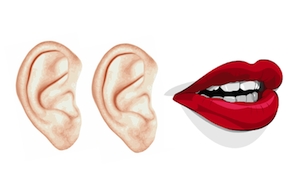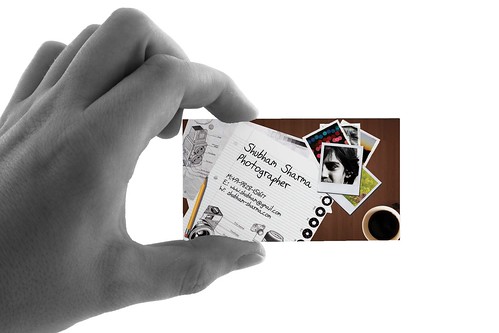Many people don’t know how to make small talk. Often, these people are busy, results-oriented individuals, they have big goals and they don’t see the point of making small talk.
Thus, there is a double challenge I’m going to address here: not only clarifying how to makes small talk with style, but also what is it’s precise significance in social situations and interactions.
Why Making Small Talk Matters
Small talk is often seen as meaningless conversation motivated by social politeness: It lacks meaning and value, but you do it because that’s the proper thing. Well, I couldn’t disagree more with this idea.
In my definition, small talk is conversation on safe and somewhat superficial subjects (the weather, the news, the hottest movies or the latest fashion), but it is not meaningless conversation.
Personally, I’ve learned to stay away from meaningless conversation. If I don’t enjoy it and don’t find significance in it, I do one of two things: I change the subject or I eject. Other than the topic, there is nothing small about small talk and this is why knowing how to make small talk matters as a people skill.
Before anything else, you need to realize that if you struggle with making small talk, it’s to a large extent a confidence issue. People who are confident in social interactions are naturally able to make small talk and connect with others.
So one way or another, you’ll need to get this handled. My conversation confidence presentation will provide you a solid foundation for this. So check it out here for free and learn the secrets to being a confident conversationalist. It’s loaded with practical advice.
Keep It Meaningful

Making small talk makes a lot of sense with people you’ve just met. Imagine asking a person you know for 30 seconds: “So, how’s you sex life?” That is waaay too intrusive! Small talk on the other hand provides a method to ease into the discussion.
When I make small talk, the subjects may be superficial for comfort, but they’re subjects I care about and I approach in straightforward manner, staying away from clichés. This way, I make the discussion meaningful for me and frequently, as a result, for the other person.
Even if I’ll chat with a person I’ve just met about the weather, I’ll make the conversation meaningful. For example, if it’s winter I’ll mention how I don’t like the cold weather, how it probably has something to do with the fact I was born in mid-summer and how I can’t wait for the summer and the sunny beach.
Focus on what is interesting as a topic and on what is real within you. You’ll make the talk fun even though you keep it small.
Have a Life
It’s easy to make small talk when you have a lot of things to chat about. One key realization I had as a social confidence coach is that people who know how to make small talk well have a rich inner and especially outer life.
Conversation is for them just a matter of expressing that. It’s much harder to make small talk well when all you do is work a repetitive job or play on the computer all day.
A rich lifestyle creates content and it helps you engage others. If you don’t have one, it’s time to create it: read, travel, try new things, take on various hobbies, do some charity work and of course, socialize. Not only that this will help your conversations, but it will make your whole life a lot more rewarding as well.
Care about the Vibe More Than About the Topic
A conversation is much more than an exchange of facts and ideas. It is an exchange of energy. What many people miss is that when you know how to make small talk, it means you can create a positive exchange of energy.
The topic is just an excuse, so it doesn’t have to be a deep topic. When I’m out with my friends, we’ll spend hours talking about clothes, pubs, scooters or trends. And we’ll have a blast because the vibe of the entire interaction is positive and relaxed.
When you’re making small talk, you want to focus more on being friendly and positive than on picking the right topic or saying the right things. Smile, relax, joke around, be spontaneous and be silly.
Remember that your vibe comes mainly from your attitude, and watch this instructional presentation I created, as it will give you a sensible guide to improving your confidence in social interactions.
Don’t Get Stuck In Small Talk
Last but not least, keep in mind that small talk is not a destination. It’s just a temporary station. If an interaction with a person goes well, do move the conversation to deeper and more personal topics.
You can talk about topics such as family and relationships, career plans, life goals, challenges and so on. You now find yourself in a new land: the land of big talk.
Ultimately, a strong bond between two people is created when they talk about the most meaningful things, in the most meaningful way. Conversation is very much like a journey into a mysterious forest, and a deeper you go in it, the more intriguing it gets.
I believe that knowing how to make small talk is one of the key people skills to master. From there, if you also know how to have charisma and engage others in more intimate conversation, you can get outstanding results with people and you can build a highly fulfilling social life for yourself.
Image courtesy of Ivan Makarov




 Jonny Gibaud
Jonny Gibaud 


